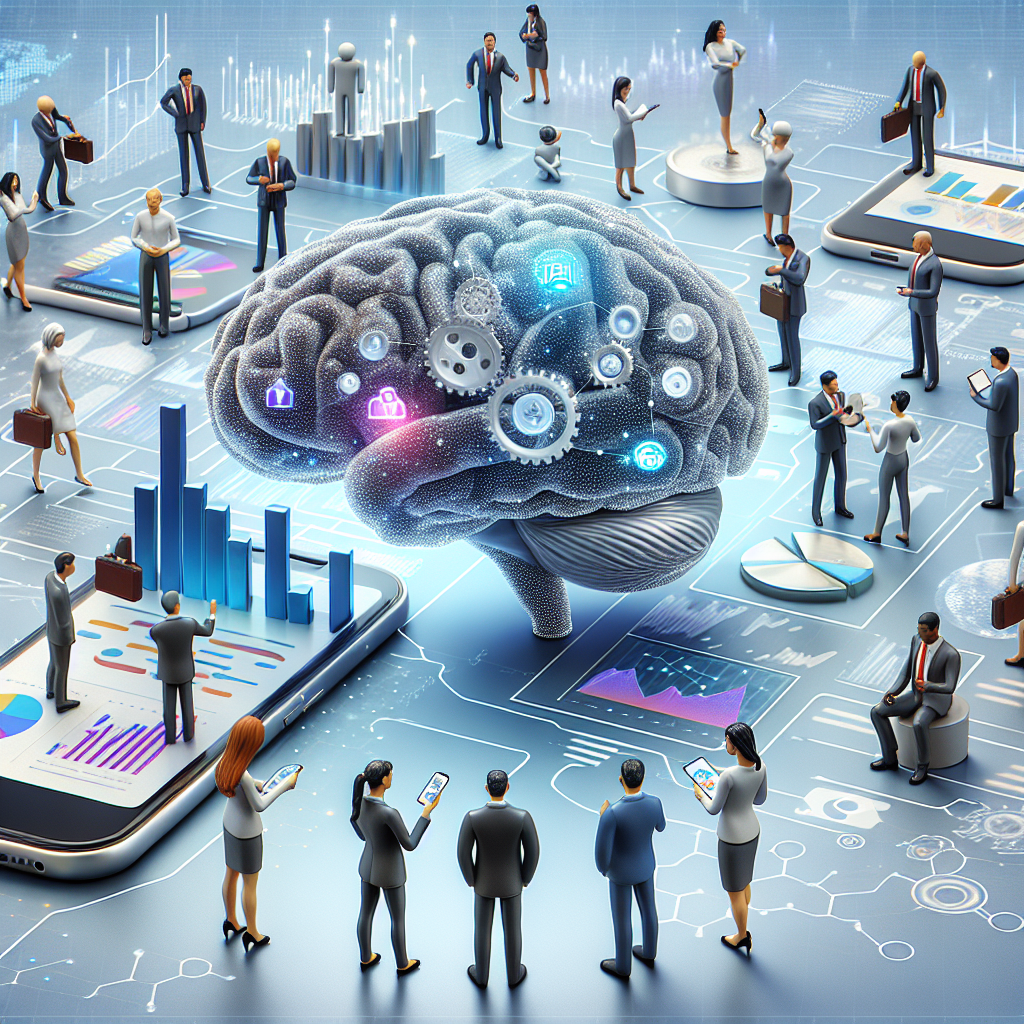In today’s consumer-driven landscape, where individuals seek customized experiences, businesses are increasingly relying on artificial intelligence (AI) to elevate their sales interactions. Achieving personalization at scale is no longer optional; it’s essential. Let’s delve into how AI is reshaping the sales industry by facilitating hyper-personalization that caters to each customer’s distinct needs.
The Demand for Personalization
Today’s consumers face an overwhelming array of choices, rendering generic sales techniques ineffective. Clients anticipate that businesses will comprehend their preferences, needs, and behaviors. Research indicates that 80% of customers are more inclined to purchase from brands that deliver personalized experiences. Consequently, there is a strong motivation for businesses to implement strategies that utilize AI to comprehend and meet individual customer requirements.
AI’s Role in Personalization
Data Collection and Analysis
Data is the backbone of AI-driven personalization. Companies gather extensive data through multiple channels, including website visits, social media interactions, and transaction histories. AI algorithms process this data to extract insights regarding customer behaviors and preferences. Leveraging machine learning and predictive analytics, businesses can uncover patterns that influence purchasing behaviors, enabling them to customize sales interactions to suit individual customers.
Segmentation and Targeting
AI empowers companies to segment their customer base with unmatched accuracy. Rather than relying on broad classifications, AI can develop detailed segments using behavioral and demographic information. This capability allows sales teams to customize their messaging and approach, ensuring that the right messages reach the appropriate audiences at optimal moments. For instance, a company may identify a group of customers who consistently buy premium products and design targeted campaigns specifically for them.
Content Personalization
A crucial element of AI in sales personalization is the customization of content. AI tools can generate tailored emails, product suggestions, and even website content based on individual user data. By analyzing user activities, AI can recommend products that resonate with a customer’s interests and previous purchases, markedly increasing the chances of conversion.
Real-Time Interactions
AI technologies like chatbots and virtual assistants enable real-time interactions with prospective customers. These tools can evaluate customer inquiries in the moment and deliver personalized responses, crafting a seamless sales experience. For example, if a customer spends time on a website contemplating a specific product, an AI-driven chatbot can initiate a dialogue and provide tailored advice or promotions related to that item.
Predictive Analytics
Powered by AI, predictive analytics allows companies to foresee customer needs ahead of time. By examining trends and historical data, businesses can anticipate the products or services individual customers might require in the future. This forward-thinking approach to sales can significantly improve customer satisfaction and loyalty, as customers value feeling understood and appreciated.
Case Studies: Successes in AI-Driven Personalization
Amazon
Amazon exemplifies personalization at scale. Through AI algorithms, the company provides tailored product recommendations based on previous purchases and browsing activities. This methodology not only enhances customer experience but also boosts sales, positioning Amazon as a leader in the e-commerce sector.
Netflix
Netflix uses AI to scrutinize user behaviors and preferences, creating bespoke content recommendations for each subscriber. The “Recommended for You” section is the direct result of intricate algorithms that analyze viewing histories, thereby improving user engagement and retention.
Coca-Cola
Coca-Cola utilizes AI to craft personalized marketing strategies by evaluating data from social media and various platforms. Their “Coca-Cola Freestyle” machines employ customer data to recommend beverages, enriching the customer experience while gathering valuable insights for future campaigns.
Challenges and Considerations
Despite the considerable advantages of AI-driven personalization, businesses must also navigate potential challenges. Data privacy remains a critical issue, with regulations like GDPR enforcing strict standards on customer data usage. Companies must be transparent regarding their data collection and utilization practices.
Moreover, embedding AI into existing sales frameworks may necessitate substantial investments in technology and training. Organizations must weigh the initial costs against the long-term benefits in customer satisfaction and loyalty.
Conclusion
Personalization at scale, driven by AI, represents a transformative method for enhancing sales interactions. By harnessing data insights to tailor customer experiences, businesses can engage clients more effectively, resulting in elevated conversion rates and increased loyalty. As technology advances, those who embrace AI-driven personalization will be well-equipped to succeed in a fiercely competitive market.

